
Shopware is the highly advanced platform for eCommerce solutions, chosen by more than 800,000 entrepreneurs around the world (versions 5 and 6 collectively). Its leading competitor is Magento 2. The latter is more difficult to configure but, nevertheless, much more popular (which means that it is much easier to find developers for a project).
Read also: How to Hire the Best Magento Developers
In this article, we will delve into a comparison of these solutions in terms of performance and, in particular, review the Shopware 6 vs Magento 2 performance testing concepts.

Image Source: miro.medium.com
Shopware 5 and Shopware 6: What is the Difference?
Before proceeding to describe the Shopware 6 vs Magento 2 performance testing concepts, let us review the differences between the two most used Shopware versions. When creating the version 6, developers have rewritten the system core from scratch using the Symfony 4 and Vue frameworks. This allowed incorporating the support for all the latest technologies and services, such as cloud integration, from the grounds up.
Find out more info about: 9 Cloud Migration Risks to Consider
The interface in the new version of Shopware is based on the Bootstrap platform and the Twig engine, which makes it easier for developers to configure the appearance of the store without any special knowledge. The backend configuration was also simplified as much as possible.
Moving on. Shopware 6 employs the API-First approach, thanks to which IoT technologies and voice commerce can outfit the existing sales channels.
Another advantage of this version is an Asset component that allows managing URLs, CSS styles, JS scripts, images, etc. Thanks to its high efficiency, a fundamentally new level of media management was achieved.
New to Shopware 6 are also integration with the Varnish HTTP caching server and introduction of Edge Side Includes (ESI) markup language used to simplify the web infrastructure scaling.
Finally, there is a new Rule Builder module. It allows adapting the sales processes without the need to make changes to the code. This, in turn, allows suppliers of template solutions to adapt them easily to the most specific corporate requirements.
As you can see, it makes sense to compare Magento 2 with Shopware 6, as the latter is more efficient and capable than Shopware 5.
Read more:
Shopware B2B
Shopware Monitoring
Shopware SaaS
Shopware Enterprise
Shopware Comparison
Performance Testing
During the performance testing, resource consumption over typical usage and interaction scenarios is measured. Let us look at other types of testing that are often confused with performance testing.
Shopware 6 vs Magento 2: Performance Testing vs Integration Testing
Most often, performance testing is confused with some kinds of functional testing, for example, integration testing. This type of testing involves testing individual software modules combined into a group. Usually, integration testing is carried out after unit testing and before system testing.
While integration testing belongs to functional tests (checking whether the software presentation meets certain specifications), performance testing is non-functional (it is used to check the system loads during typical operation scenarios). Thus, comparing the two directly is invalid because they have different goals and are carried out separately.
Shopware 6 vs Magento 2: Performance Testing vs Load Testing
Load testing is actually a subset of performance testing methods. During the load testing, you would examine your Shopware 6 vs Magento 2 performance testing website under extreme loads.
Next, we will talk in more detail about the correct choice of Shopware 6 vs Magento 2 performance testing method and also designate Shopware 6 vs Magento 2 performance testing difference between different approaches.
Shopware vs Magento: Comparison
Now, let us move on to comparing the Shopware and Magento platforms.
Shopware 6 vs Magento 2: Performance Testing Requirements
Before the performance testing itself, you might want to conduct the following checks to avoid Shopware 6 vs Magento 2 performance testing issues and get the most objective results:
- Cross-browser testing over the different types of devices. It makes sense to check the appearance of your storefront in various browsers and on different mobile devices. In some cases, the page layout may become garbled;
- Extension compatibility test. Some of the built-in extensions may cause problems with others. Make sure that all extensions work correctly and conduct regression testing for extensions with similar or related functionalities;
- Load testing. Imitate a high load to your store to ensure that a large volume of visitors would not cause malfunctions;
- Autotesting. Our Shopware 6 vs Magento 2 performance testing requirements list is concluded by the need for automated testing that would be useful in detecting defects in the early stages.
What do you need to keep in mind before conducting the Shopware 6 vs Magento 2 Performance Testing for Web Application?
We do not recommend trying to check the speed of page rendering since it does not allow you to evaluate the speed of the particular platform's core accurately. Instead, in the Shopware 6 vs Magento 2 performance testing process, we advise estimating the response time of the Shopware and Magento platforms' servers.
Shopware 6 vs Magento 2: Performance Testing Plan
So, this is how our proposed Shopware 6 vs Magento 2 Performance Testing Plan looks like:
- Start page testing;
- Directory testing;
- Simple product pages testing;
- Complex product pages testing;
- Shopping cart testing.
Shopware 6 vs Magento 2: Performance Testing Software
The great thing about performance testing is that you do not have to spend money on expensive software. The most popular tools are free and open source. To achieve sufficient results, you will need three things: a performance-testing tool, a profiling tool, and a tool for analyzing data and metrics.
Shopware 6 vs Magento 2: Performance Testing List
Next, we will review a Shopware 6 vs Magento 2: Performance Testing List in more detail.
Shopware 6 vs Magento 2 Performance Testing with JMeter
Apache JMeter is a powerful tool for testing performance and, in particular, conducting load tests. While initially, JMeter was designed to test the performance of web servers, today it has become an automated testing tool with a wide choice of options, also suitable for functional testing of web applications, file servers, web servers, and even databases.
Shopware 6 vs Magento 2 performance testing with Postman
Postman is a very convenient HTTP client for testing websites, presented in the form of a browser extension. With it, you can compose and edit HTTP requests that will be saved automatically for further use. The program also has a built-in query editor, with the ability to encode requests, upload them from files, and send binary data.
Statistic gathering with Tideways
Tideways is a PHP profiling extension that provides a connection to tideways.io service for the analysis of profiling results. A single library provides all the tools required to find out how efficiently the backend of the web site or application works.
Analytics and reporting with Google Analytics
Google Analytics can help you create a detailed Shopware 6 vs Magento 2 performance testing report, allowing even a complete novice to conduct such comparison.
Performance measurement with Firebug
And finally, another useful browser plugin - Firebug, both debugger and DOM inspector for JS, CSS, DHTML and XMLHttpRequest.
Shopware 6 vs Magento 2: Performance Testing Guide
After you have downloaded and installed all the components necessary for testing, it is time to start using them.
Here are the results that the testing environment gives when analyzing the home page of a site based on Shopware 6 (192 ms):

Image Source: miro.medium.com
And is the result of the same page based on Magento 2 (127 ms):

Image Source: miro.medium.com
However, when testing directories and other pages from the list, the results are in favor of Shopware. Magento shows the result of 272 ms:

Image Source: miro.medium.com
While Shopware - 159 ms:
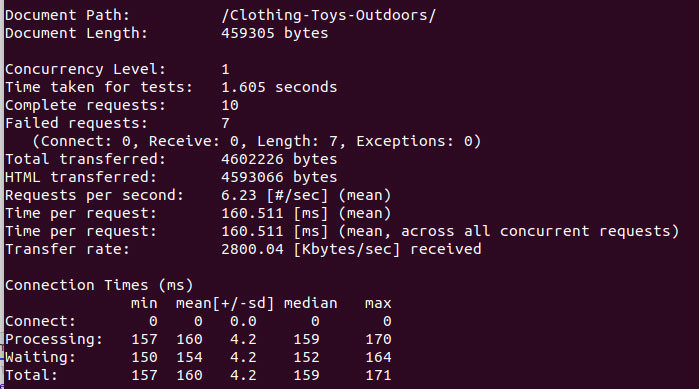 Image Source: miro.medium.com
Image Source: miro.medium.com
The following tests confirm this trend. Magento - 252 ms:
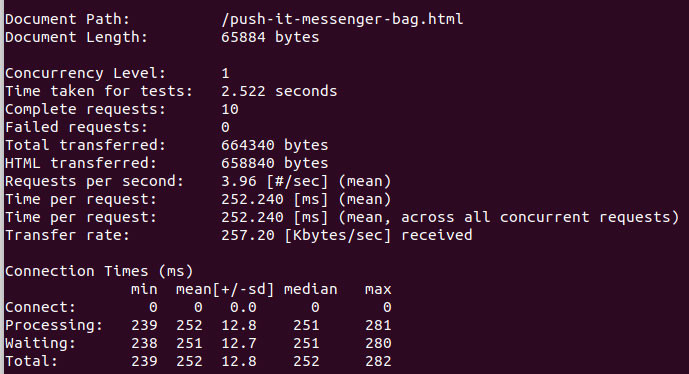
Image Source: miro.medium.com
While Shopware results in 111 ms:
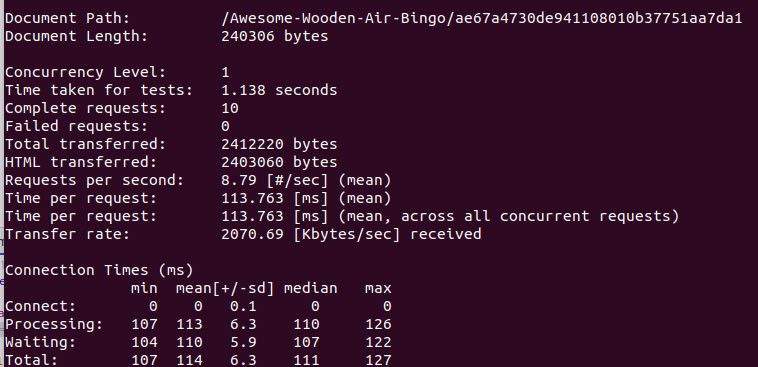
Image Source: miro.medium.com
Having the above knowledge, you can check for yourself that in most cases Shopware is superior in performance to Magento by testing the basic template web stores proposed by both platforms.
Shopware 6 vs Magento 2: Performance Testing Results
If we compile all the test results into a single bar chart, the following comes out:
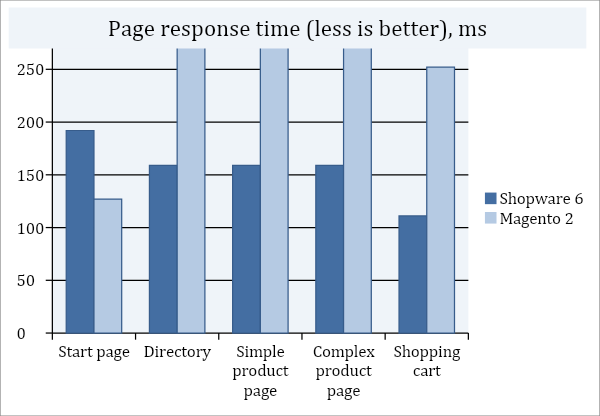
Image Source: miro.medium.com
As you can see, with the exception of the start page, Shopware 6 displays better speed than Magento 2.
Shopware 6 vs Magento 2: Performance Testing on AWS
If you would host your shop in the AWS cloud, Amazon-branded test products will come to your aid. We will talk about them below.
Cloud Performance Testing
Performance Testing of AWS-based solutions is done using two tools: CodePipeline and Blazemeter.
CodePipeline is a powerful Shopware 6 vs Magento 2 performance testing environment with which you can run automatic load testing. As for Blazemeter, this is an improved fork of the Apache JMeter described above, which, in addition to all the features of its prototype, provides additional tools for reporting and scaling of the tested loads.
You can get more information about AWS cloud testing at the official website.
Shopware 6 vs Magento 2 Performance: Best Practices
So, the best performance testing practices are in the following three rules:
- Creating a clear plan for testing pages (the optimal set of pages was described above);
- Using modern tools for automatic testing (JMeter, Postman, etc.);
- Testing in a variety of environments and with critical loads.
Only in this case will you achieve the most objective results.
Shopware 6 vs Magento 2: Performance Testing Services
What if you do not wish to study Shopware 6 vs Magento 2 performance testing documentation and hesitate in choosing the right Shopware 6 vs Magento 2 performance testing framework? In this case, you should find an experienced Shopware 6 vs Magento 2 performance testing engineer. In particular, our team has qualified specialists who will carry out tests with a high level of accuracy for your eCommerce solution. You can also contact us to inquire about Shopware 6 vs Magento 2 performance testing cost.
Shopware 6 vs Magento 2: Performance Testing and Load Testing
We hope that this article has helped you to figure out how to run Shopware 6 vs Magento 2 performance testing. As we can see from the demonstrated Shopware 6 vs Magento 2 performance testing results, Shopware is significantly more efficient than Magento. Therefore, if you do not pursue big names and have no strict restrictions over the choice of the development team, we can recommend that you choose Shopware. Being certified and experienced in both Magento and Shopware development, we can help make the right choice of CMS for a particular business, and also create, configure, migrate, modernize and, of course, test the performance of an eCommerce solution. Contact us today to get expert consultation on your challenge.

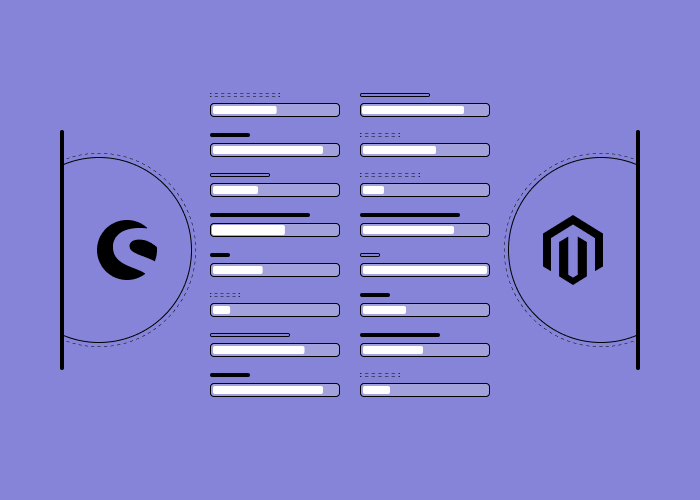




 Image Source: miro.medium.com
Image Source: miro.medium.com




